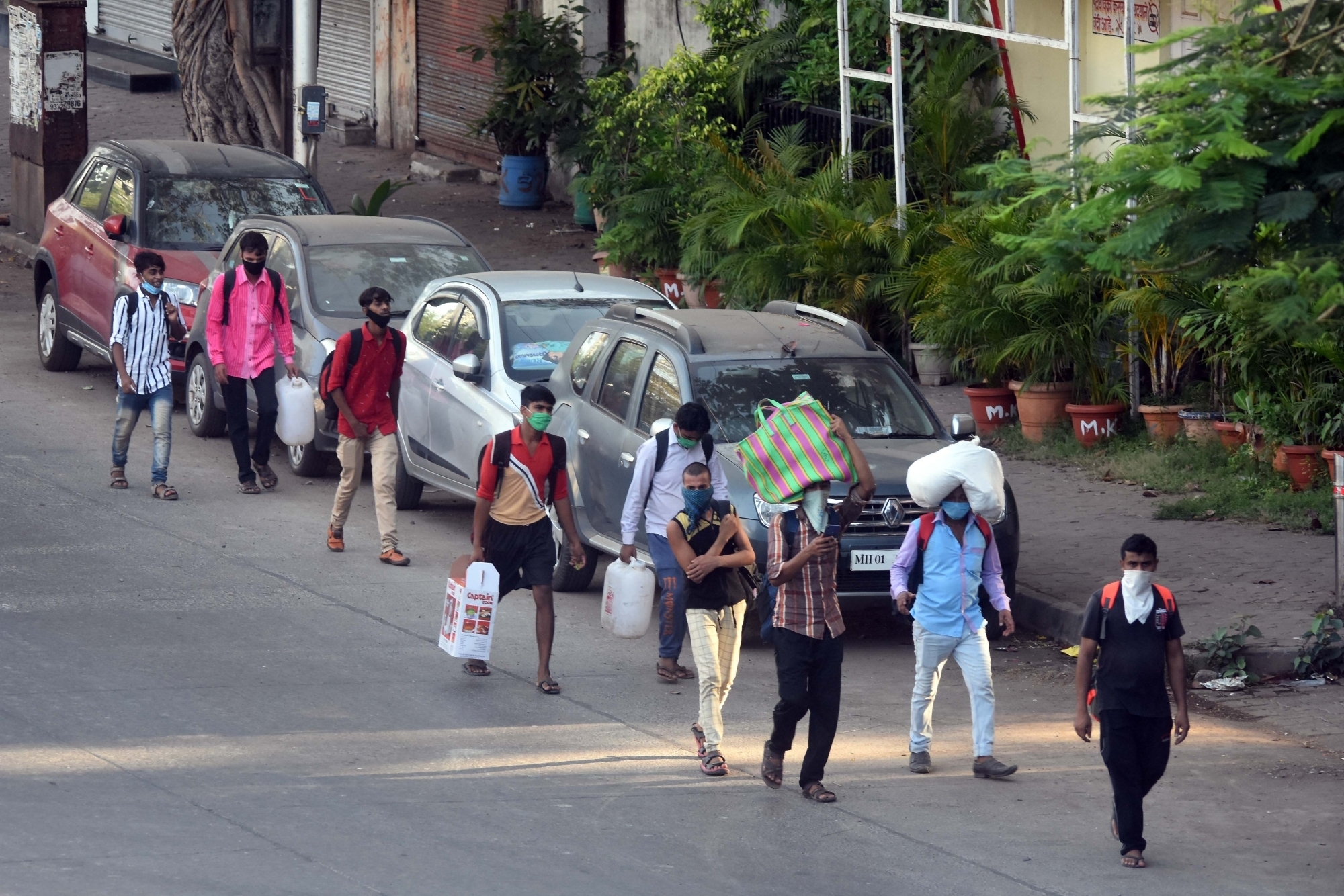Respondents said payment of staff salaries and working capital would be tough.
New Delhi: Worried over the mass exodus of migrant workers to respective home states, industries now want them to return so that economic activities could restart at the earliest, once the lockdown is over.
According to a quick survey by the trade body PHD Chamber of Commerce and Industry (PHDCCI) to assess the impact of Covid-19 pandemic on businesses and maintaining profitability, 49% of the respondents said that retaining the full workforce would be a major challenge. The respondents in the survey said that payment of salaries to employees and working capital would be the major challenges while businesses prepare for increasing sales volumes, competitiveness and cost cuttings.
Migration of workers is still going on across the country. While a large number of them have already travelled back to their respective villages on foot or by buses, arranged by the state governments, the Centre has so far operated more than 800 Shramik Special trains ferrying more than 10 lakh such workers to their home states.
PHDCCI president Dr D.K. Aggarwal said: “Since the inception of the lockdown period, most of the migrant workers had moved to their native places. Further, due to the absence of public transport services like buses and railways, migrant labourers are not able to reach their work places and, therefore, full resumption of exempted activities has become difficult. Apart from these issues, country’s supply chain has been massively disrupted due to the ongoing Covid lockdown.”
The Centre, on its part, has initiated discussion with employers’ bodies like CII, FICCI and Assocham. Labour Minister Santosh Gangwar held a webinar with these bodies to discuss issues like restarting economic activities, job creation and measures to improve the situation of MSMEs to enable them to discharge their liabilities under labour laws. There was a general demand to suspend labour laws, barring some key provisions across the country for the next two-three years to help industries come out of the crisis induced by the lockdown to combat the Covid-19 pandemic.
The industry bodies suggested a slew of measures and sought relaxations like increasing working hours to 12 hours per day from the existing eight hours per day to help them revive operations, according to a statement by the Ministry of Labour and Employment. The statement said that the industry associations suggested “to suspend the labour laws for the next 2-3 years except for provisions like minimum wages, bonus and statutory dues, to help the industry come out of the present crisis”.
According to survey, besides retaining the full workforce, other challenges for businesses in the post lockdown include maintaining price-cost margins/profitability (61%), payment of wages/salaries to employees (60%), availability of working capital (58%), repayment of loans/payment of EMIs (53%), high costs of capital (52%), availability of finances/loans (51%), costs of social distancing (51%), weakening of demand (51%) and compliances of labour laws (50%).
“Due to the lockdown, majority of the factories/ businesses/companies are shut with no or little revenue, all export orders are getting cancelled and units unable to repay loans. Majority of the respondents have responded that this will make them less likely to retain of the full workforce. Further, most of the retrenchment is likely to take place in labour-intensive sectors. Thus, 49% of respondents opined that retention of the full workforce will be highly challenging in the post lockdown scenario,” Aggarwal said.
The survey revealed key plans of the businesses in post lockdown such as increasing the sales volume (67%), enhancing competitiveness of business (65%), cost cutting of business operations (64%), enhancing business operations in the domestic market (60%), focus on innovation, research and development (58%), enhancing the price-cost margin (53%), reducing the workforce in business operations (50%), increasing the scale of business operations (44%), diversify business operations (43%) and enhancing business operations in the international market (36%).
The PHDCCI has said that the labour laws in India need to be made more effective, flexible and in sync with emerging economic and industrial scenario. “Most of the respondents have responded that given the disruptions caused by Covid-19 and the resultant lockdown, following the relatively rigid provisions in different labour laws prevalent in the Indian economy will become difficult and hamper the revival of industry. Thus, 50% of respondents opined that compliance of labour laws will be highly challenging in the post lockdown scenario,” the trade body has said.
It has demanded that the government should pay 75% of salary of the workers of the lockdown period and employer contribution in EPFs during the lockdown period should be brought down to zero to ease the financial burden of the industry.
Finance Minister Nirmala Sitharaman, interestingly, has announced reduction in the statutory PF from 12% to 10% for three months. She also said that government will pay the PF for firms with 100 staff, earning less than Rs 15,000, as announced earlier under the Pradhan Mantri Garib Kalyan Scheme.

